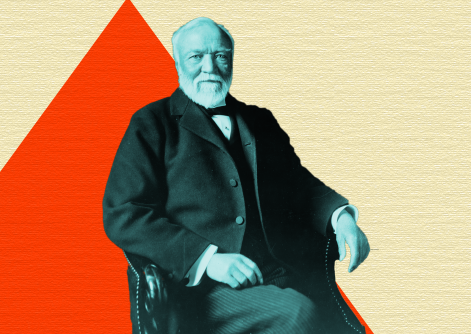It’s also yet another warning to persons in the charitable sector that overweening government is not their friend. The best evidence for that charge? The fact that all nine members of the court flatly rejected the government’s claims to power over religious groups in civil society. Even Obama appointees Elena Kagan and Sonia Sotomayor signed on to Chief Justice Roberts’ opinion, which condemned as “extreme” and “untenable” the federal government’s miserly view of religious liberty.
As its name makes clear, Hosanna-Tabor Evangelical Lutheran Church and School v. Equal Employment Opportunity Commission pits a church and its elementary school against federal bureaucrats. The case began in 2005, when the church dismissed Cheryl Perich, a teacher and “commissioned minister,” for insubordination and disruptive conduct that violated church teachings. Perich went to the feds at the EEOC and sued the school under the Americans with Disabilities Act, demanding reinstatement.
For the court, the key question in the case was if the government can force the church to re-hire Perich, or does the First Amendment protect the church from interference in the selection of its ministers? For four decades, all of the federal circuit courts of appeal have agreed that discrimination laws have a “ministerial exception,” which means that government cannot entangle itself in the decision, say, of a synagogue about who shall be its rabbi.
These lower courts sometimes disagree about how far the ministerial exception should extend – to a choir director, a parish school teacher, a janitor? But the courts have always affirmed that religious entities must have a sphere of autonomy to pursue their mission. That’s why even left-wing groups like the ACLU and Americans United for Separation of Church and State, when they submitted amicus briefs to the Supreme Court, grudgingly agreed that some measure of autonomy for religious groups exists under the Constitution.
Amazingly, however, the Department of Justice in its brief went to the extreme of arguing that no such exception exists. Ed Whelan, a leading court watcher, noted that this “aggressive stance” put the administration “sharply at odds with its usual supporters on the religious Left” and led many of those supporters to file amicus briefs against the government’s position, including the Episcopal Church, the Presbyterian Church (U.S.A.), the United Methodist Church, the United Church of Christ, the Evangelical Lutheran Church in America, the Muslim-American Public Affairs Council, the American Jewish Committee, and the Union for Reform Judaism. (Go here for a full list and links to briefs.)
During oral arguments at the Supreme Court, no one was surprised when Justice Scalia tore into the lawyer from the Solicitor General’s office:
black on white in the text of the Constitution are special protections for religion. And you say that makes no difference?
Less expected was the shocked reaction that the lawyer’s intransigence drew from Justice Kagan, who not many months ago was the Solicitor General for this administration. “To go back to Justice Scalia’s question,” Kagan interjected:
I too find that amazing, that you think that … neither the Free Exercise Clause nor the Establishment Clause has anything to say about a church’s relationship with its own employees.
Still more surprisingly, Kagan not only went on to sign the 9-0 majority opinion rejecting the government’s power grab, she also signed on to a concurring opinion by Justice Alito, which goes even further than the majority opinion in its defense of the country’s “little platoons.”
Alito and Kagan do not limit their vision to cases of synagogues and churches hiring a head minister. Instead, they paint those situations as part of the larger mosaic of civil society:
Throughout our Nation’s history, religious bodies have been the preeminent example of private associations that have “act[ed] as critical buffers between the individual and the power of the State.”
The Justices agree that “the elimination of discrimination against persons with disabilities” is a worthy goal, but they warn Americans not to forget
that the autonomy of religious groups, both here in the United States and abroad, has often served as a shield against oppressive civil laws. To safeguard this crucial autonomy, we have long recognized that the Religion Clauses protect a private sphere within which religious bodies are free to govern themselves in accordance with their own beliefs. The Constitution guarantees religious bodies “independence from secular control or manipulation—in short, power to decide for themselves, free from state interference, matters of church government as well as those of faith and doctrine.”
Later, Alito and Kagan again stress the way in which religious groups are part of a larger civil landscape. Citing an earlier case involving the Boy Scouts, they write
“[f]orcing a group to accept certain members may impair [its ability] to express those views, and only those views, that it intends to express.” … Religious groups are the archetype of associations formed for expressive purposes, and their fundamental rights surely include the freedom to choose who is qualified to serve as a voice for their faith.
Perhaps these lines will give heart to those who love to stress “advocacy” as a prime function of charitable groups. The opinion should certainly encourage those who struggle to ensure respect for small, faith-based groups that serve their local communities.
Indeed, this case is a classic Cinderella story. “It is amazing when a church from Redford, Michigan, stands up for its rights and ends up going all the way to the Supreme Court,” observes the church’s pastor, Paul Undlin.
Deano Ware, the African-American member of the congregation who served as the church’s local attorney, added
For six years I fought the government, sacrificing my practice and livelihood because I believed the government had no right to choose teachers for our small school. In the end, we showed up at the steps of the Supreme Court with our sling and stone, in the company of the Becket Fund for Religious Liberty and the greater community of faith, fought the government, and won. This is a great day for all Americans of every faith and all freedom-loving citizens.
How small was the K-8 school? It had only 84 students and 7 teachers when Perich developed an illness that led her to take a leave of absence from teaching fourth-graders. The school’s first response was to combine three grades in a single classroom and hold Perich’s job open for six months. When parents complained and Perich’s health continued to prevent her return, the school finally hired a replacement teacher.
That’s just the sort of struggle many nonprofit schools and charities face every day. Thank God and nine justices that in future, charitable Davids may breathe a little easier about the federal Goliath. For as the Becket Fund for Religious Liberty, which represented Hosanna-Tabor, points out,
the penalties in employment litigation are often severe. Successful plaintiffs are eligible for lost wages, future wages, damages for emotional distress, punitive damages, and attorney’s fees. Thus, an adverse judgment in this case would be more than enough to wipe out Hosanna-Tabor’s church. Many other churches are in the same boat. Indeed, half of all churches in America have 50 regularly participating adults or less. Religious schools and charities are often even more vulnerable.
Lastly, the Becket Fund itself deserves a hosanna. Founded 17 years ago by the visionary Kevin “Seamus” Hasson, its small band of “guerrilla litigators” has represented persons of all faiths, from Amish to Zoroastrians, protecting them under the Constitution’s “first freedom” from the heavy hands of the federal Goliath.
Every charitable group owes Becket and Hosanna-Tabor gratitude for risking injury as they stepped into the bruising role of “buffers between the individual and the power of the state.”
DISCLOSURE: Although I have the honor to be affiliated with the Becket Fund, I had nothing to do with this case, and the opinions expressed here are entirely my own. For more detail on the Hosanna-Tabor decision, visit Becket’s case page.






Great article. But then I’m a sucker for a Zoroastrian reference.